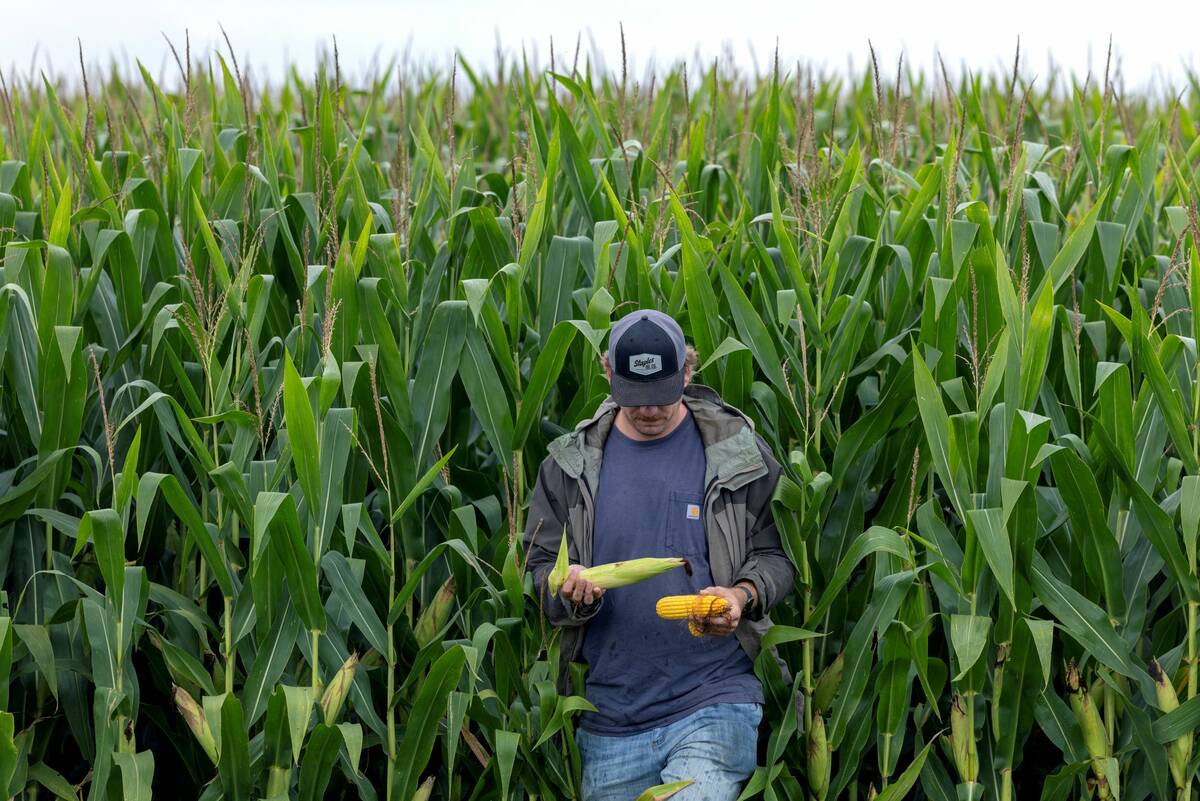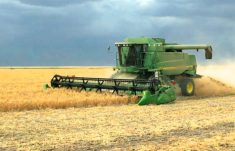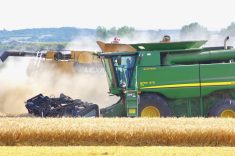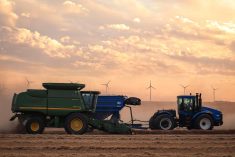One of the federal opposition parties in full favour of carbon pricing is lending its support to calls by farm groups for a carbon tax break for grain drying.
Vancouver Island MP Paul Manly, the Green Party’s caucus critic for agriculture, announced the party’s position Monday.
“We support the grain producers of Canada in their appeal to the federal government to waive the carbon tax on fuel used for grain drying during last year’s harvest,” he said in a release.
“The disruption and expense of last year’s weather-plagued harvest is already causing widespread hardship. Carbon tax relief is justified and necessary.”
Read Also

The U.S. corn crop could be the biggest ever. That’s terrible news for America’s farmers.
The USDA predicts a record corn crop for U.S. farmers, who question the agency’s accuracy amidst high debt and low crop prices.
“Farmers are always looking for efficiencies and would certainly adopt energy efficient grain dryers if they were available,” Kate Storey, the Greens’ non-sitting shadow cabinet agriculture critic, said in the same release.
“For now, we have few choices. If nature fails to provide the sun and wind required to dry the grain in the field, we are forced to use grain drying equipment which adds cost to food production… In a wet year, the carbon tax on fuel needed for grain drying just adds insult to injury.”
The Greens on Monday also called on the federal Liberal government “to invest in the development of energy-efficient grain drying technology and short-season crop varieties, and to promote farming techniques for early maturity and quick harvest,” Manly said.
Green Party policy calls for a “revenue-neutral” price on carbon pollution through a fee and dividend system, but also calls for federal assistance for farmers and “others in vulnerable sectors” to further adapt to climate change.
Ag groups calling for carbon tax relief for grain drying include, among others, the National Farmers Union, which in mid-December passed a resolution seeking a rebate for farmers for fuel used in on-farm grain drying.
“More grain is being dried all over the Prairies than we have ever seen, and producers have been very startled at the extra cost of the tax when they get their bills,” Todd Lewis, president of the Agricultural Producers Association of Saskatchewan, said in a separate release in November following the re-appointment of Marie-Claude Bibeau as federal ag minister.
On some bills, he noted, the carbon tax is a surcharge of 40 per cent on the commodity cost of propane and natural gas — bills “that are going to be hard to pay in a difficult year.”
Markus Haerle, chair of Grain Farmers of Ontario, in November described the tax as one “farmers cannot afford to pay when markets and harvest conditions are so challenging… Burdening grain farms with this tax means that farmers cannot invest in technologies that can combat climate change.”
Bibeau, for her part, recently said she plans to seek out more information on carbon pricing’s effects on farms.
“This is the case that I am building right now, to see if, in fact, I do have a case to present in front of the minister of environment and the minister of finance,” she said earlier this month.
“I cannot go just on feelings, I have to go with a case built on evidence and this is what I’m building right now, with the collaboration of my provincial colleagues and the collaboration of the industry that is affected.” — Glacier FarmMedia Network












